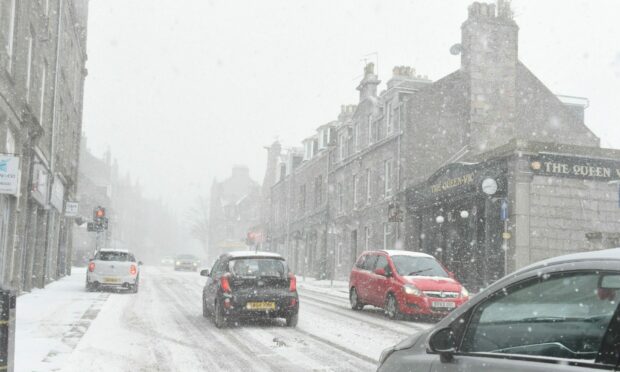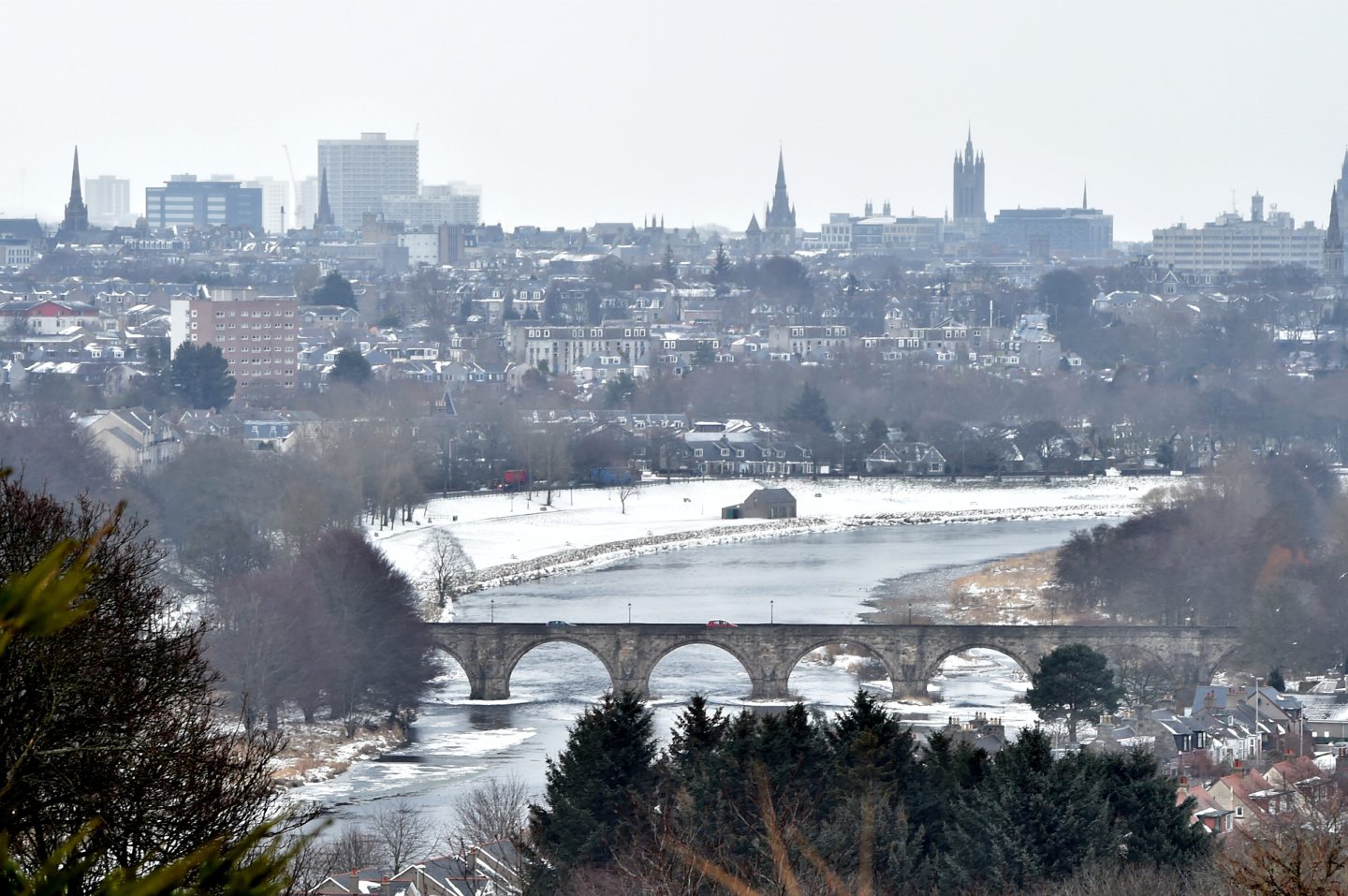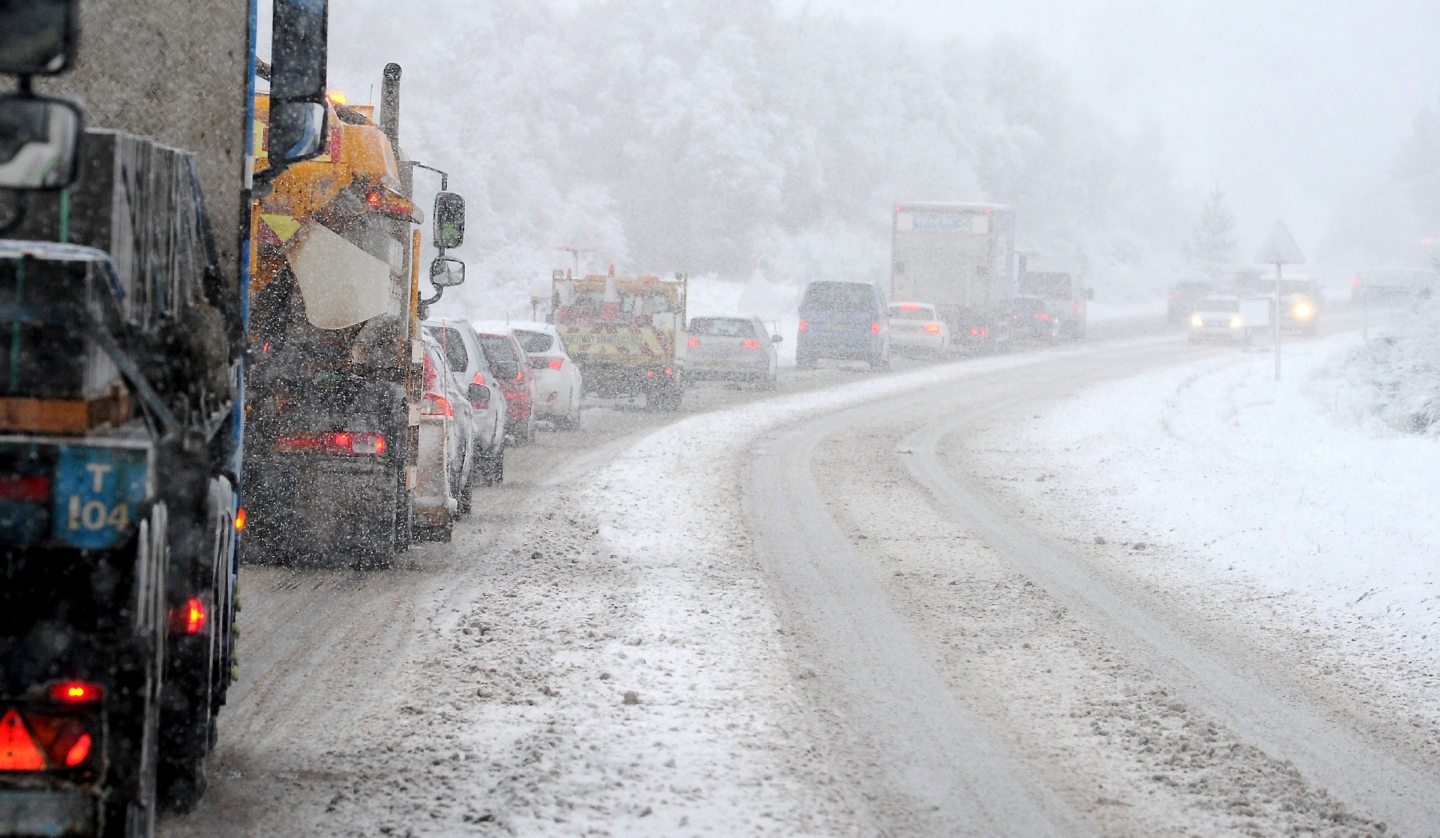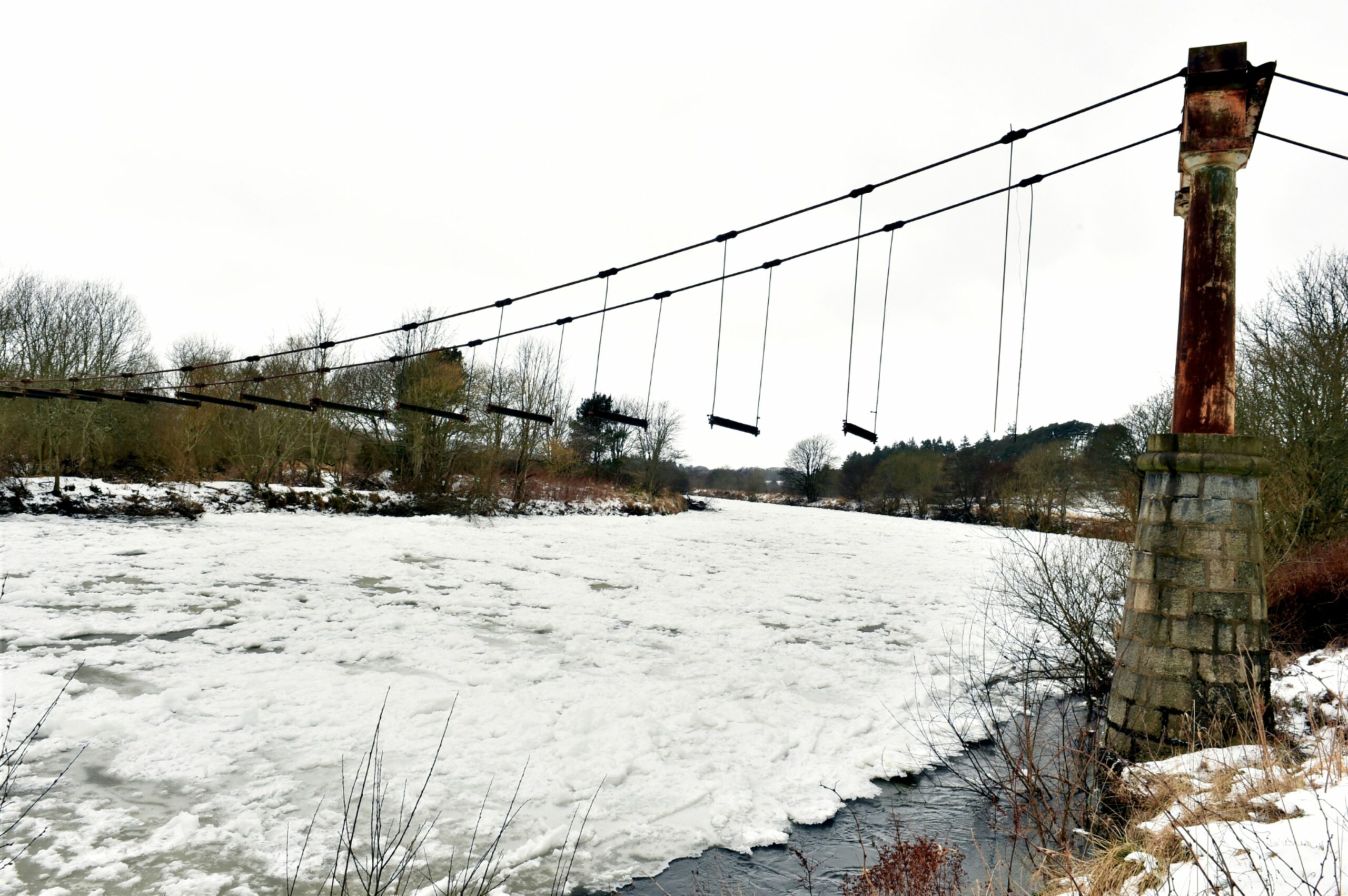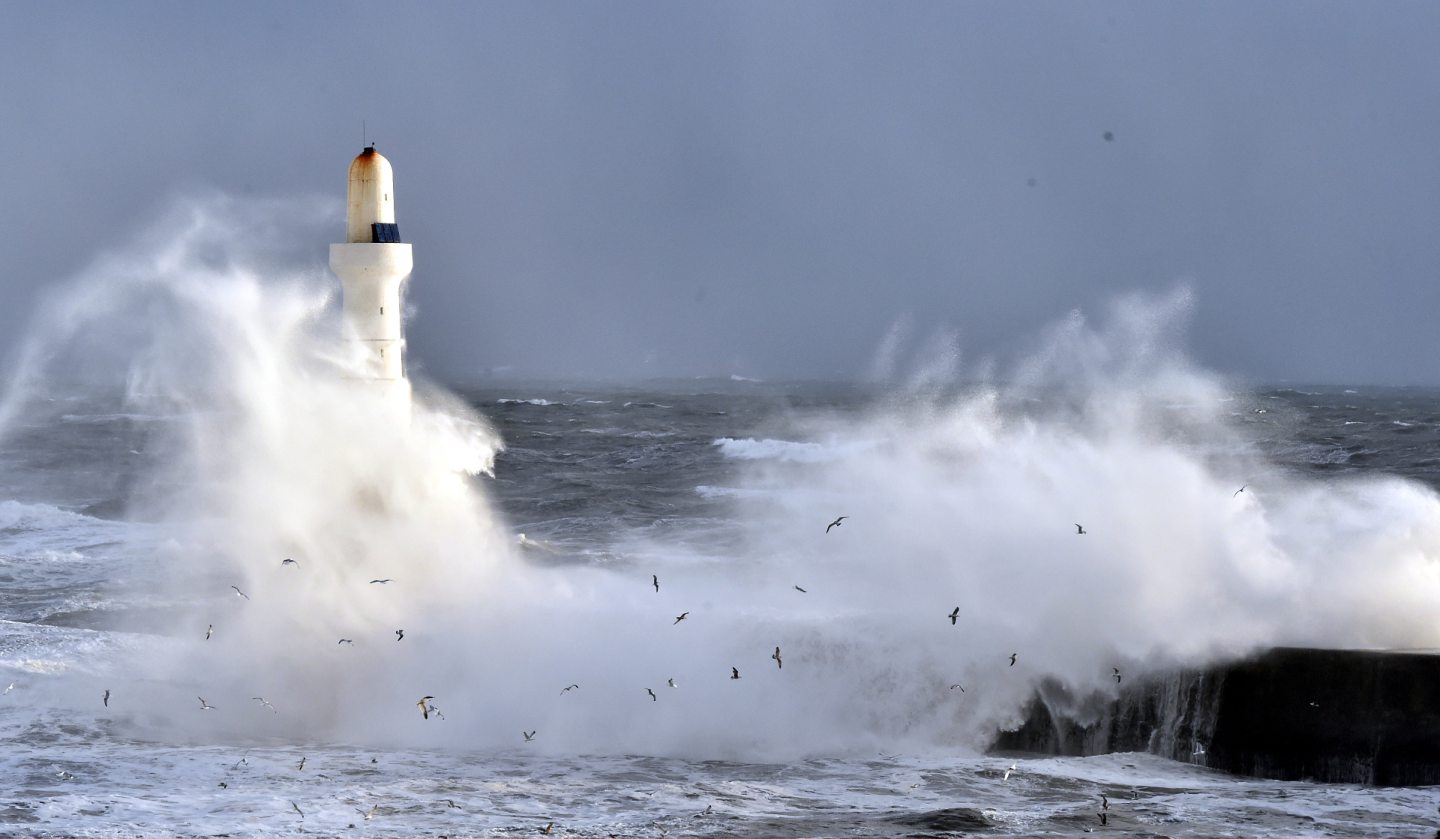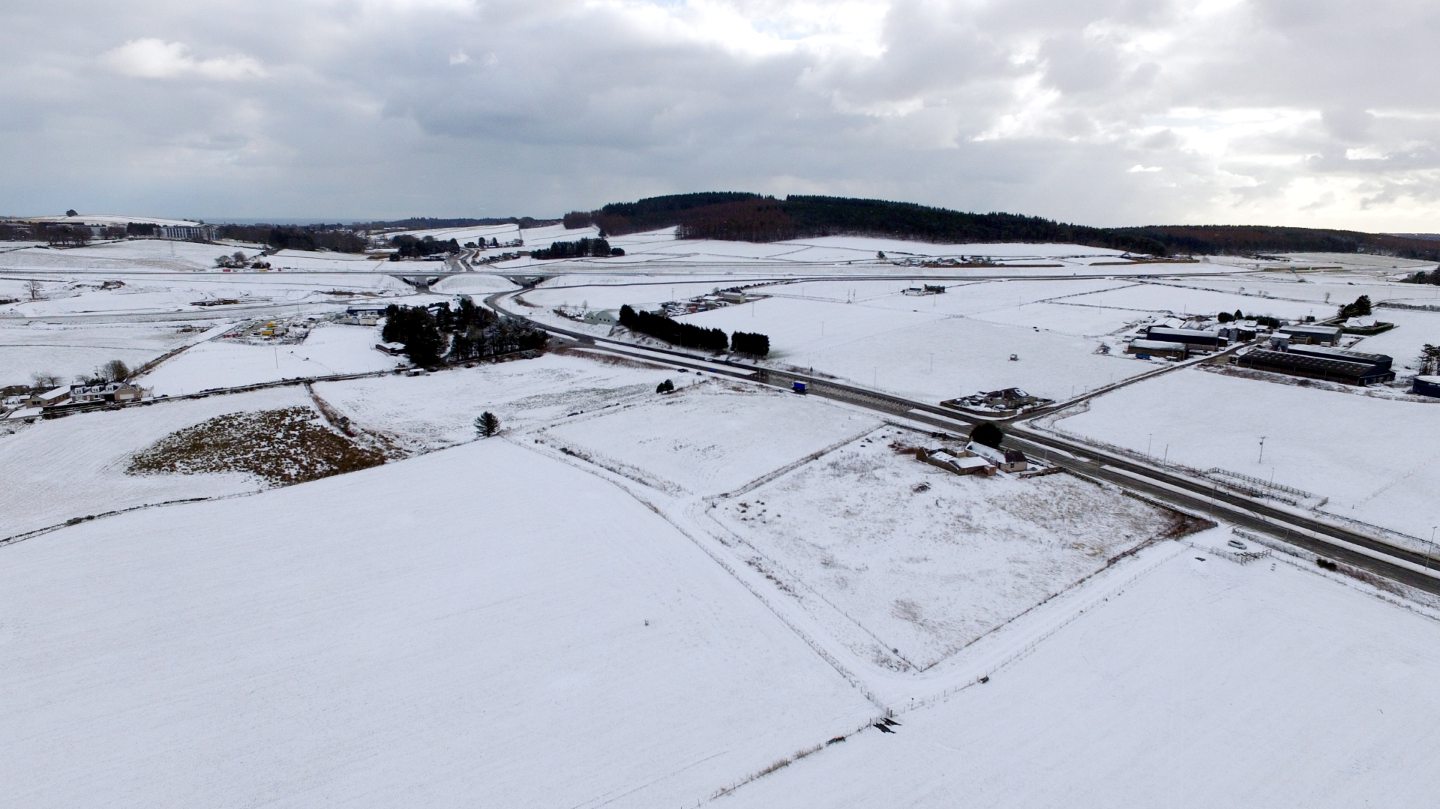The north was bitten by the Beast from East in February 2018 which brought major travel disruption and left some communities stranded.
Arctic blizzards caused by sudden stratospheric warming combined with Storm Emma to create widespread chaos until the beginning of March.
Trapped cars, broken-down trains, and closed schools was the theme of February and March as the Beast from the East caused havoc.
The River Dee was completely frozen over while Aberdeen airport had to cancel flights from London, Paris and Dublin amongst many other destinations.
Several North Sea oil rigs were left unmanned in the chaos with workers evacuated because there was no water after the pipes froze during the sub-zero conditions.
It all added up to a time unlikely to be forgotten quickly and these dramatic images from our archives show just what happened when the Beast sharpened its claws.
So what happened?
Aberdeenshire Council stocked up on nearly 15,000 tonnes of salt in preparation for the storm.
The council’s roads quality and resources manager Bill Lennox said they were preparing to clear the roads before the snow turned to ice.
He said: “The biggest challenge for us will be to move the snow off the roads before many vehicles can travel over it and it becomes compacted onto the surface.
“The more success we have with that, the easier it will be over the next few days.”
Chief Superintendent Stewart Carle, head of road policing, warned that anyone who had to travel should take adequate supplies in case they were stranded.
He said: “With the wintry weather on its way, I would urge drivers across Scotland to start to take extra care on the roads.
“Snow is already falling in some areas.
“Drivers should make sure they are prepared for their journey with warm clothing, food and drink, sufficient fuel and a charged mobile phone.”
When the snow started to fall, the weather warning was updated to amber.
The A90 Aberdeen to Dundee road had to be closed due to a multi vehicle pile-up due to the relentless weather
The transport minister urged people to think twice before venturing out.
Humza Yousaf said: “There is a possibility that the amber warning could, in some areas, be upgraded to a red.
“We are right on the cusp.
“That could be not just treacherous, but frankly dangerous, if you travel.”
As the snow flurries increased, supermarket shelves were left empty as supplies were unable to travel and reach their destinations.
Most quickly ran out of essentials such as bread and milk.
A spokesman for Co-op told the Evening Express: “Safety is our number one priority.
“We continue to closely monitor the weather and the condition of the roads.
“Our stores have experienced high demand as shoppers walk to their nearest convenience store – avoiding any unnecessary travel.
“Like other retailers, we have experienced some localised disruption and we are restocking stores as a priority whenever it is safe and the roads are passable.”
Local MSPs warned against panic buying, but most petrol stations were still drained of fuel.
Highland Council was forced to close 72 schools and nurseries during the storm, while Moray shut 36.
Across the two areas, 15,350 pupils were sent home.
In the Cairngorms, temperatures dropped to -15C, but wind chill made it feel closer to -28C.
Northlink and CalMac ferry operators reported disruption on routes to Orkney and Shetland.
Sailings from Oban to Coll, Tiree, Colonsay, Islay, Lismore and Mull, were also disrupted.
All Highland League games were called off.
A snow plough helped escort an ambulance carrying a mother and her three-week old baby on a treacherous 110 mile journey to hospital.
As the Beast from the East battered the North Sea, it caused widespread chaos offshore.
Many rig workers claimed that water supplies, heating and hot food had not been adequately provided during the disaster.
Twenty-four workers were evacuated from Repsol Sinopec’s Beatrice Alpha near Inverness when they were left without water after its pipes froze.
The essential crew that remained were provided with bottled water until the problem was fixed.
On the Marathon Oil-run Brae Alpha rig, non-essential staff were transferred to a neighbouring installation.
Meanwhile, Chevron shut down production on the Alba Northern platform due to a power supply glitch.
Several rigs were left understaffed in the chaos.
Temperatures slowly started to rise on March 4.
However, it wasn’t the welcome relief many had expected.
The snow melting, combined with high tides, led to severe flooding.
Frozen pipes across the region thawed in the warmer temperatures – then burst.
Some areas were left temporarily without water while repairs were made.
As the north and north-east started to piece itself back together, 17 deaths were confirmed across the UK.
